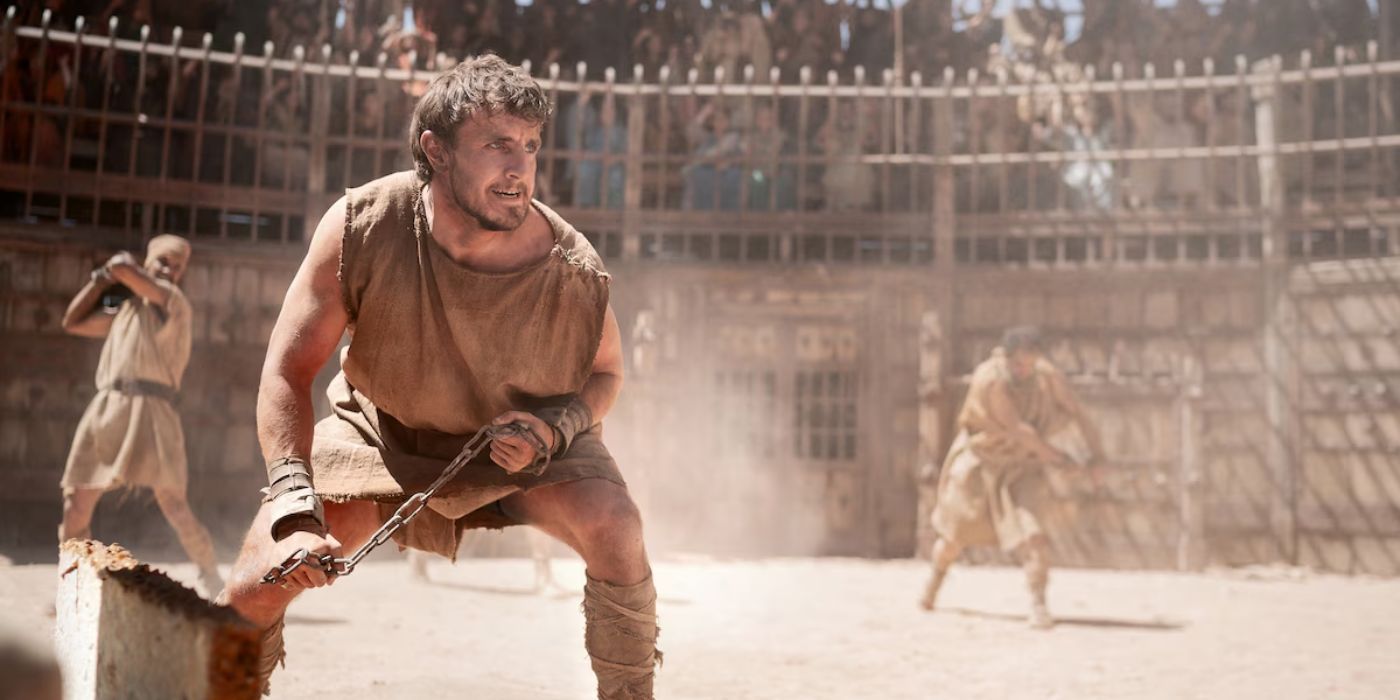
Warning: This article contains spoilers for Gladiator II.Gladiator II centers on Paul Mescal's Hanno, aka Lucius, returning to Rome as a gladiator while hiding his true identity. The film shows Lúcio demonstrating his strength after being taken prisoner by the legions of the Roman general Acácio (Pedro Pascal). Like Russell Crowe's Maximus before him, Lucius becomes a beloved gladiator. However, his secret identity also begins to draw attention when several people around him begin to realize that Lucius is the son of Maximus and Lucilla (Connie Nielsen), in part because of a crucial scene.
Gladiator II'The cast and their performances have been met with praise, while the story serves as a nice addition to Ridley Scott's original 2000 film. In particular, Mescal's Lucius and Denzel Washington's Macrinus steal every scene they're in and create a contrast to the emperors Geta and Caracalla (Joseph Quinn and Fred Hechinger). In a scene with these characters, Lucius's use of a quote from Virgil Aeneid begins to reveal their secret and leads to an even greater reconciliation.
Virgil was very famous in the Roman Empire, but most people wouldn't be able to quote him
Although Virgil's works were widely distributed, not everyone could read
Although Gladiator II contains multiple historical inaccuracies, the characters' familiarity with the poet Virgil fits the standards of the time. Virgil was the most important Roman poet, so his works would have been the basis for what children learned in schools, especially the Aeneid as it tells the legendary story of the founding of Rome (via Oxford Classical Dictionary). For individuals from the upper classes of Rome, it would have been quite normal to be familiar with Virgil, especially the Aeneidthat Lúcio cites.
However, while it makes sense for Lucius and his mother to be able to quote the works of Virgil, many other people in the Roman Empire would not be able to quote the Aeneid. Roman elites would have been highly educated, but it is estimated that only 15-20% of the population of the Roman Empire was actually literate (through Berkshire Archaeological Society). This means that Lucius' ability to cite these writings immediately trumps him as having an educated and probably elite background.
Lucilla realizes who Lucius is because she knows Virgil
The quote Lucius recites reminds Lucilla of her childhood
When Lucius is introduced in the Colosseum, Geta somewhat conveniently remarks, with Lucilla within earshot, that Lucius was the gladiator who quoted poetry after fighting at the feast of the emperors at an earlier point in the film. When Geta fortuitously repeats the precise lines, Lucilla immediately begins to suspect that the mysterious gladiator Hanno is actually her long-lost son, Lucius. because of the special meaning of this verse. After the fight, Lucila looks longingly at an inscription from the Aeneidsuggesting that this poem may even have been a shared favorite between her and her son.
While it is possible that others in Rome could also quote Virgil, hearing these specific lines combined with seeing Hanno for the first time in so long convinces Lucilla that he is Lucius, allowing Gladiator II to create a charged reunion for mother and son.
Since Lúcio would potentially be very familiar with these specific lines, it makes sense that he would be able to remember them long into adulthood, just like his mother. While it is possible that others in Rome could also quote Virgil, hearing these specific lines combined with seeing Hanno for the first time in so long convinces Lucilla that he is Lucius, allowing Gladiator II to create a charged reunion for mother and son.
Source: Oxford Classical Dictionary, Berkshire Archaeological Society